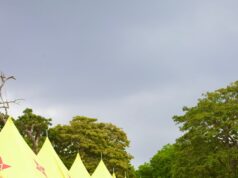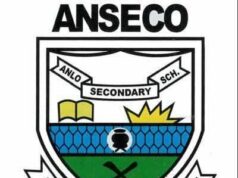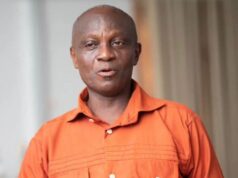President John Dramani Mahama has renewed his commitment to permanently fix the power challenge soon without resorting to the blame game.
“I don’t appreciate as a President in presiding over a country in darkness, ” he said, adding that ” I will fix the challenge head-on”.
Speaking at the 20th Ghana Journalists Association (GJA) awards at the State Banquet Hall in Accra last Saturday night, the President said various attempts to arrest the challenge in the past had been on the short term.
The awards were held on the theme,” “Ghana in search of reliable energy to power development – the role of the media.”
Seth Kwame Boateng of Joy FM, who is also the Accra-based radio station’s presidential correspondent, won the P.A.V. Ansah Best Journalist award.
President Mahama said “it is easy to have quick fixes but what we need in Ghana today is a permanent fix that will not only ensure energy security for us but that will position the county as the hub of power supply in West Africa”.
He thanked Ghanaians for bearing with the government under the stressful power situation.
“The power shortage has been an uncomfortable situation for our people, but I am touched by the fortitude and love the people have continued to demonstrate in the crisis,” he said.
Disturbing development
President Mahama described as disturbing a picture he saw on WhatsApp of young children doing their homework on a pavement in front of a bank that, without doubt, had a generator working.
“I owe it to those children that we’ll fix this problem as soon as possible. I owe it also to the many Ghanaians who have made suggestions to me and continue to urge me to resolve the power supply deficit,” he said.
The President said the efforts being taken to address the power problem were complex, involving different agencies and people working together to deliver all aspects of the process with urgency.
According to him, several generating projects were expected to be completed in the few months ahead and this would add about 1,800 megawatts of generation in addition to projects that were being worked on over the years.
Fuel security
Mr Mahama stated that to ensure sustained security in power, there was the need for fuel security, which the government was also working on.
He said the main source of power for the future was going to be thermal with hydro as supplementary supply, adding that most of the thermal supplies being brought in were from private sources.
He questioned whether the nation could sustain supply in the midst of the inefficiency in the distribution system, especially when 30 per cent of power was lost in power theft and non-collection of revenue.
To address the problem, the President stressed the importance of reforms in the power value chain.
Mr Mahama urged the media to help in the education on energy conservation.
The media, he said, must interrogate the reforms being carried out in the power sector instead of the allegations of conspiracy to sell the Electricity Company of Ghana (ECG).
Free media landscape
The President noted the positive effect of the free media environment, but expressed concern about the impunity with which some journalists misused the freedoms.
He cited that he just read about Ghana becoming the first in the global freedom ranking for 2014. “This recognises us as the freest country in Africa.”
Journalists doing their work in the atmosphere of peace and freedom without any intimidation was an important catalyst for national development, he said, but maintained that there was more to do to maintain the needed sanity in the system.
He also touched on the misuse of social media, mentioning a recent item that ranked Ghana as the 10th dirtiest country in the world.
“I have since looked for the study and who conducted this study to no avail and yet it is content on social media and I believe people accept that we are the 10th dirtiest country in this world,” the President said.
He promised to continue to work with the media to further develop the standards of Ghanaian journalism.
President Mahama said although there could not be a perfect media environment, it was important to introduce better regulations to the broadcast media to improve the national discourse.
The President, himself a member of the GJA, said he took false reports about him as occupational hazards.
“If you Google my name you will find a jumble of truths, half-truths, downright lies and a lot of other information. For politicians you call it occupational hazards,” he said.
Media Development Fund
Touching on the media research fund, the President said it was undergoing restructuring by the Ministry of Communications to ensure continued financing of research and critical activities needed to develop journalism.
He also said he looked forward to the final draft of the Broadcasting Bill for consideration by the Cabinet and approval by Parliament.
Mr Mahama used the occasion to renew his call on striking public sector doctors to resume work as negotiations on their conditions of service continued.
“As partners in development we must appreciate we are in this together,” he said.






















